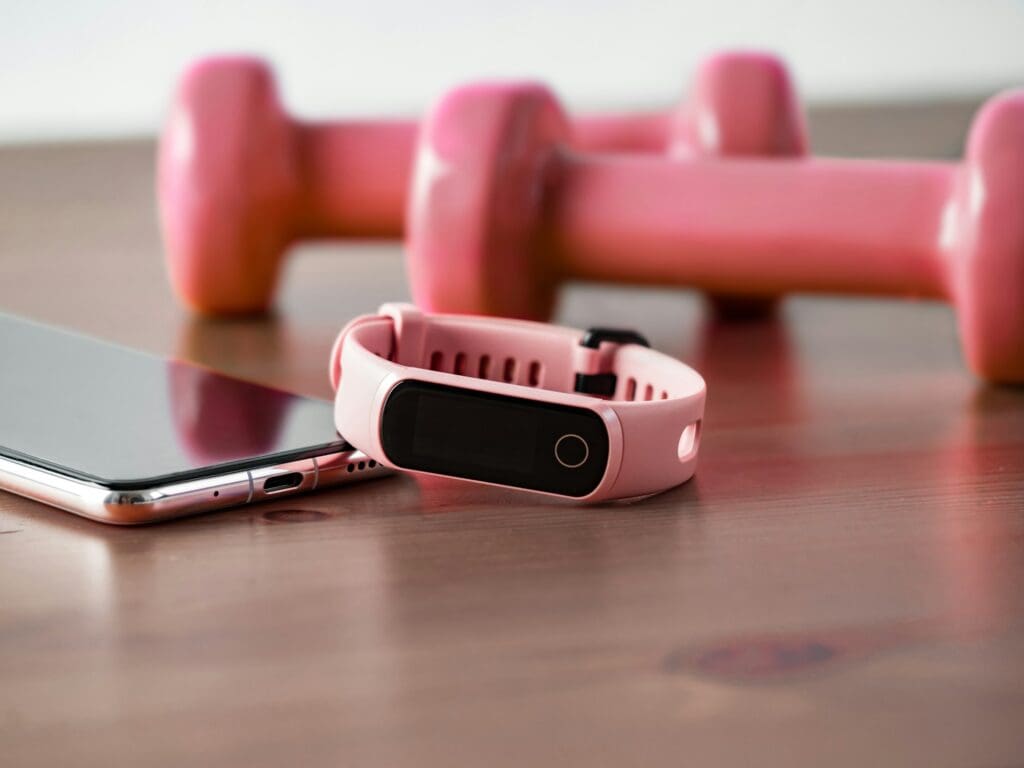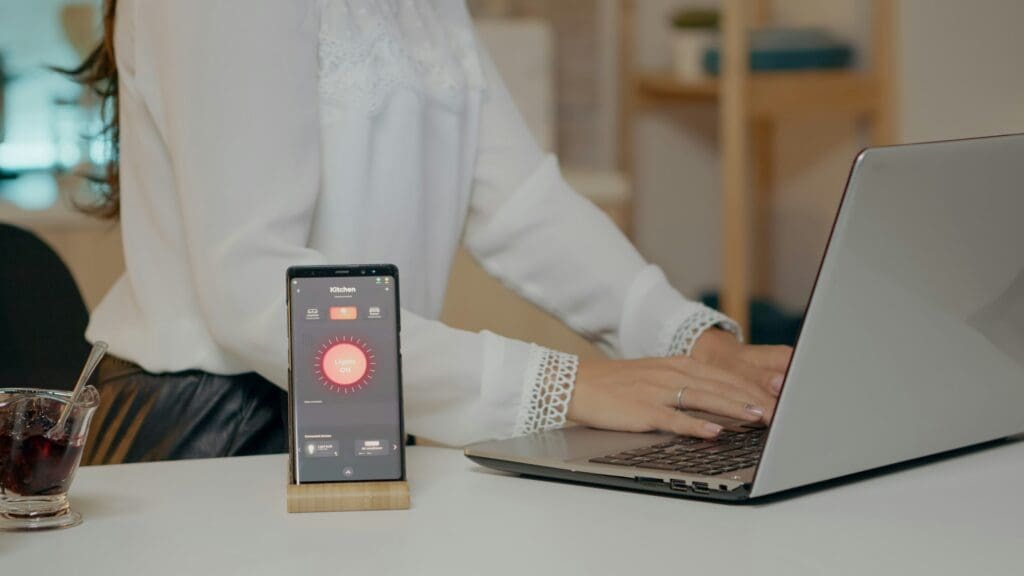


In today’s fast-paced world, maintaining health and wellness can often feel overwhelming. However, the good news is that technology is revolutionizing the way we approach our well-being.
From fitness apps that track your every move to telemedicine platforms bringing healthcare to your fingertips, there’s no shortage of digital aids to help you live your best life.
“The greatest wealth is health.” – Virgil
Now more than ever, innovative solutions are making it easier to achieve and sustain a healthy lifestyle.
Whether you’re looking to manage stress, improve your diet, or get more active, there’s a technological tool ready to assist you on your journey.
In this article, we’ll explore how you can leverage technology to enhance your health and wellness in practical, achievable ways.

Taking advantage of technology for health and wellness starts with understanding your specific needs. Whether you aim to enhance your fitness, improve sleep quality, or manage a chronic condition, there’s likely a tech solution available to assist.
1. Identify Your Goals: Start by defining what you want to achieve. Do you need a better exercise routine? Trying to monitor your mental health? Or perhaps you’re interested in a healthier diet? Clear goals help you choose the right tools.
2. Research and Choose the Right Apps: From fitness trackers to nutritional apps, the digital health landscape offers myriad options. Invest time in researching which apps or devices best align with your objectives.
Look for user reviews, expert recommendations, and feature comparisons.
3. Stay Informed on New Technologies: The world of health tech is constantly evolving. Subscribe to newsletters, follow relevant social media accounts, and participate in online forums to stay updated on the latest advancements and trends.
4. Utilize Wearable Technology: Wearable devices like smartwatches and fitness bands can track your physical activity, heart rate, sleep patterns, and more.
They provide real-time feedback, which can be instrumental in making informed decisions about your daily routines.
5. Embrace Telehealth Services: Telehealth enables you to consult with healthcare providers from the comfort of your home. This is particularly beneficial for routine check-ups, mental health consultations, and follow-up appointments.
It saves time and provides access to a wider range of specialists.
6. Maintain Data Privacy: With increased use of health tech, data privacy is paramount. Choose platforms that prioritize security and comply with regulations such as HIPAA.
Always read privacy policies and understand how your data is being used.
By thoughtfully integrating technology into your health and wellness routine, you can make more informed decisions, achieve your health goals, and ultimately lead a healthier life.
Technology is rapidly transforming the landscape of health and wellness, offering new ways to monitor, manage, and improve well-being.
From advanced fitness trackers to innovative sleep tech, the latest trends are equipping you with tools to make informed decisions about your health.
Dive into how these emerging technologies are setting new benchmarks in personalized care, making it easier than ever to achieve your health goals.

Integrating technology into health and wellness routines can transform how you approach personal care, making it more efficient and effective.
One key benefit is the ease of access to health information. Having immediate access to reliable health data empowers you to make informed decisions about your wellness journey.
Additionally, technology enables personalized healthcare experiences. Wearable devices and health apps collect vast amounts of data about your daily habits, which can be analyzed to offer tailored advice.
This means you receive recommendations that are specific to your individual needs, rather than generic advice that may not be as effective.
Moreover, leveraging digital health tools can lead to better management of chronic conditions.
Remote monitoring devices allow you and your healthcare provider to keep track of key health metrics, such as blood pressure or glucose levels, from the comfort of your home.
This constant monitoring can help in early detection of potential issues, making it easier to address them promptly.
Another significant advantage is the improved communication between you and your healthcare team. Telehealth platforms enable virtual consultations, ensuring you can reach out to your doctor without the need for travel.
This not only saves time but also makes it easier to maintain regular follow-ups, crucial for long-term health management.
Lastly, technology promotes a proactive approach to health and wellness.
With tools that remind you to take medications, track your fitness goals, and encourage healthier eating habits, maintaining a healthy lifestyle becomes more manageable.
These digital nudges ensure you stay on track, ultimately contributing to a better quality of life.

Fitness trackers have revolutionized the way we approach physical activity and overall well-being.
Devices like smartwatches and fitness bands come equipped with a range of features, from step counters to heart rate monitors and sleep trackers.
These tools provide real-time feedback, helping you stay motivated and on track with your fitness journey.
Moreover, modern fitness trackers offer personalized insights and recommendations based on your activity levels and health data.
Apps synced with these devices can guide you through workouts, set achievable goals, and even remind you to stay hydrated or take breaks. They essentially act as a personal trainer on your wrist, empowering you to take control of your health and well-being.
Big Data is transforming the landscape of healthcare by enabling personalized medicine. By analyzing vast amounts of health data, medical professionals can identify patterns and trends that were previously undetectable.
This leads to more accurate diagnoses, customized treatment plans, and ultimately, better patient outcomes.
One of the key benefits of Big Data in healthcare is its ability to integrate and analyze information from a variety of sources such as electronic medical records, wearables, and genetic data.
This integration facilitates a more holistic understanding of each patient’s unique health profile, allowing for treatments that are tailored specifically to them.
Consequently, Big Data not only enhances the precision of medical care but also provides valuable insights for preventive measures, reducing the risk of chronic diseases.

Digital therapeutics represent a cutting-edge approach to treating and managing various health conditions using software-based interventions.
These FDA-approved applications are designed to deliver evidence-based therapeutic interventions to patients, often supplementing or even replacing traditional treatments.
For example, digital therapeutics can be used to manage chronic conditions like diabetes or asthma through personalized treatment plans delivered via smartphones or tablets.
They provide continuous monitoring and real-time feedback, enabling timely interventions. This technology not only improves patient adherence to treatment regimens but also empowers individuals to take an active role in managing their health.
As research and development in this field continue to grow, digital therapeutics hold the promise of revolutionizing the future of healthcare.
Quality sleep is crucial for overall health and well-being, and innovative sleep technology is making it easier than ever to achieve restful nights.
From advanced mattresses with temperature control to smart sleep masks that monitor your sleep cycle, these technologies aim to enhance the quality of your sleep.
One popular category is sleep-tracking devices, which analyze your sleep patterns by monitoring various metrics such as heart rate, breathing, and movement.
These insights help you understand your sleep quality and identify areas for improvement.
Additionally, some sleep tech offers personalized recommendations to enhance sleep hygiene, such as adjusting bedtime routines or optimizing the sleep environment.
By leveraging these tools, you can wake up feeling more refreshed and ready to tackle the day.
Nutritional apps have made it simpler to maintain a healthy diet by offering personalized meal plans and tracking food intake right from your smartphone.
These apps cater to individual dietary needs, whether you’re looking to lose weight, build muscle, or manage health conditions such as diabetes.
With features like barcode scanning for easy food logging, nutrient analysis, and customizable meal planning, nutritional apps provide a comprehensive approach to diet management.
Some apps also offer virtual consultations with dietitians, recipe suggestions based on your preferences, and grocery list management.
By using these tools, you can make informed dietary choices, ensuring that your nutritional intake aligns with your health goals.

Imagine having a knowledgeable health consultant available 24/7, ready to assist with a multitude of health-related queries. That’s precisely what voice assistants can offer.
These AI-powered devices, such as Amazon’s Alexa, Google Assistant, and Apple’s Siri, have transcended beyond setting reminders and checking the weather. They now play a pivotal role in promoting health and wellness.
With simple voice commands, you can receive quick responses to health inquiries, get reminders to take medications, or even track your fitness goals.
For instance, if you’re unsure about the symptoms you’re experiencing, a voice assistant can provide information on common causes and suggest whether it’s time to see a healthcare provider.
This instant access to information can be especially valuable in managing chronic conditions or during unexpected health issues.
But the capabilities don’t stop there. Many voice assistants can integrate with other health apps and smart devices in your home.
Picture this: You ask your voice assistant for your daily activity summary, and it pulls data from your connected fitness tracker, displaying your steps, heart rate, and other vital stats.
Or, you’re monitoring your blood sugar levels, and the assistant fetches daily readings from your smart glucometer.
Moreover, voice assistants are becoming increasingly sophisticated in their health applications thanks to advancements in natural language processing and AI.
Some healthcare organizations are developing custom skills and applications specifically for these platforms.
This means you might soon be able to book doctor’s appointments, check lab results, or even receive guided meditation sessions through a simple voice command.
Privacy and security are paramount when dealing with health data. Companies are continually working to enhance the security features of these devices to ensure that your personal health information remains confidential and protected.
By leveraging encryption and secure data storage practices, they aim to build trust and reliability in using voice assistants for health-related tasks.
Ultimately, voice assistants are transforming the way you manage and engage with your health.
By offering a convenient, personalized, and responsive health consulting experience, they hold the potential to significantly improve your overall wellness journey.
Technology plays a crucial role in supporting mental wellness. There’s a range of mental health apps designed to provide cognitive behavioral therapy (CBT), mindfulness exercises, and mood tracking.
Virtual therapy sessions through telehealth platforms have made mental health support more accessible and convenient.
Additionally, wearable devices can monitor your physiological signs like heart rate variability, which can signal when you’re stressed and help you manage it better.
Emerging tech trends in health and wellness are transforming how you take care of your health. Artificial Intelligence (AI) and Machine Learning (ML) are being leveraged for advanced diagnostics and personalized treatment plans.
Virtual Reality (VR) and Augmented Reality (AR) are being used for pain management and physical therapy. Additionally, Blockchain technology is emerging as a crucial tool for ensuring data security and privacy in health records.
Smart home devices can significantly contribute to a healthier lifestyle by creating a more personalized and efficient living environment.
For example, smart thermostats ensure optimal room temperatures for better sleep.
Smart refrigerators can help you maintain a healthy diet by monitoring food freshness and suggesting healthy recipes.
Voice assistants can remind you to take your medications, schedule workouts, and even provide guided meditation sessions.
Technology provides various tools to assist you in managing stress effectively. Relaxation and meditation apps offer guided sessions to help you unwind.
Wearable devices can track stress indicators and prompt you to take a break or practice a breathing exercise.
There are also biofeedback devices that monitor physiological responses in real-time, helping you to understand and manage your stress levels better.
Staying motivated in your fitness journey is easier with the help of technology. Fitness trackers and smartwatches monitor your activity levels, providing feedback and setting daily goals to keep you on track.
Many apps offer virtual workout classes, allowing you to join communities with similar fitness goals. Additionally, gamified workout apps turn exercise into a fun and engaging activity, making it easier to stay motivated.
These technological advancements, you position yourself to make more informed decisions about your health and wellness.
Whether you’re tracking your sleep, crafting a personalized diet plan, or using wearable fitness devices, technology provides the tools to empower you on your wellness journey.
As these technologies continue to evolve, they will offer even more opportunities to improve health outcomes and quality of life.
Remember, the key is to stay informed and take advantage of the resources available to you. By integrating modern technology into your daily routine, you can take proactive steps toward a healthier, more balanced life.
Start exploring the various health tech options today and see the difference it can make in your wellbeing. Your future self will thank you.









